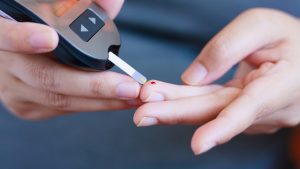DENTAL HEALTH
Sugars are a type of ‘fermentable carbohydrate’ – this also includes some starches. A ‘fermentable carbohydrate’ is a carbohydrate that can be broken down by the bacteria in your mouth.
Any food or drink that contains ‘fermentable carbohydrates’ can be broken down by the bacteria in your mouth to produce acid. This acid can then dissolve away some of the enamel surface of your teeth leading to decay.

Your body has a natural defence for this attack – saliva – it can remineralise or rebuild very early damage to our tooth enamel but this takes time. The number of times you subject your teeth to an acid attack (in other words eating or drinking) and the amount you consume can have an impact on your dental health.
Tooth decay can be minimised by limiting the frequency of exposure to all ‘fermentable carbohydrates’ (including sugars) and increasing exposure to fluoride from sources such as fluoridated drinking water, salt, milk and toothpaste (16,17). Twice daily tooth brushing with fluoride toothpaste should also be encouraged. Visiting your dentist on a regular basis can also help.
Note: The World Dental Federation (FDI) identifies the free/added sugars and acids in snacks, processed food and soft drinks as significant contributors to the risk of tooth decay, and it suggests various steps that individuals can take to reduce this risk. These include adults consuming no more than six teaspoons of sugar a day and children no more than three. This does not include sugars that are naturally present in whole fruits, vegetables and milk. (18)
| SUGAR FACTS |
|---|
| The best time to clean your teeth is first thing in the morning (ideally before you eat) and last thing at night before you go to bed (make sure you do it for at least two minutes!). |



